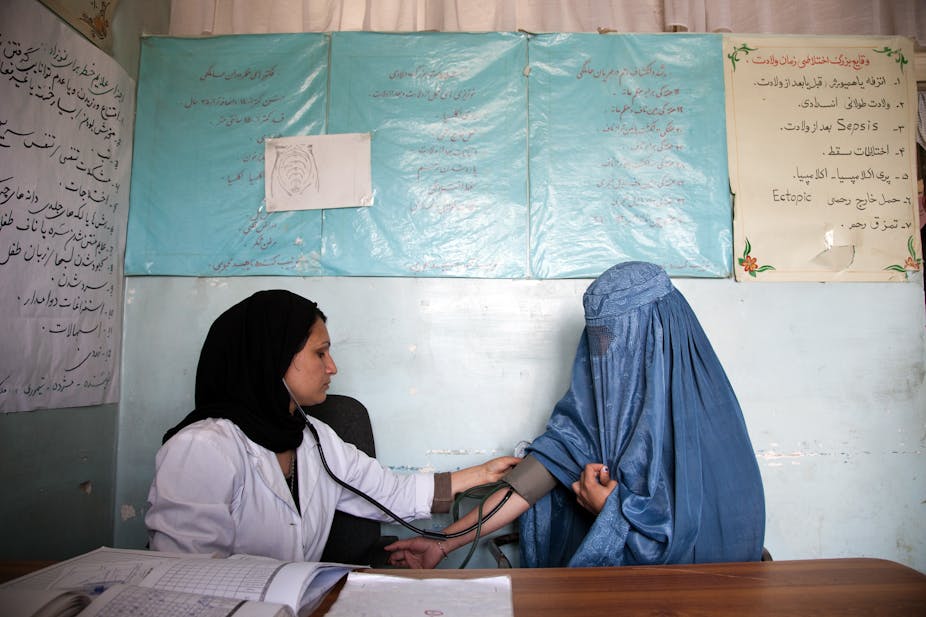As the withdrawal of foreign troops nears, with a full withdrawal expected by the end of 2014, Afghanistan has re-emerged as a major issue in Australian politics.
Those worried about Australian casualties will breathe a sigh of relief at the return of soldiers. Afghanistan, however, is facing an uncertain future post-withdrawal. President Karzai’s term is due to end in 2014 and a peace settlement with the Taliban looms.
This week, Australia will be hosting a delegation of ten Members of Parliament and Civil Society Leaders from Afghanistan, who are here to raise an issue that has so far lacked serious discussion in relation to post-withdrawal Afghanistan: women’s rights.
As much as President Karzai’s term has been shaky and subject to criticism, there have been some tentative gains made in women’s rights. Compared to the time of the Taliban regime, women in Afghanistan can now study, hold office and choose to go without the burqa. Preserving and building on these gains will be key to Afghanistan’s success in the short- and long-term, and it is vital that women’s rights are at the forefront of discussions about national security and development.
The status of women has had a consistent presence in discussions of Afghanistan since the 2001 US invasion, which was partially justified by citing the Taliban’s abuse of girls and women. More recently, cases of murder and serious abuse of women have made international headlines and constituted some of the most spectacular reporting on Afghanistan.
While the status of women is an issue worthy of significant deliberation, it is unfortunate that so many discussions lapse into cultural explanations. These are often Orientalist in orientation, and deeply connected to the notions of a “gender emancipated” West and a “misogynist, backward” East.
Kevin McCracken recently reported on the results of a survey taken of women in Afghanistan. He suggests an alarming 92% of women felt their husbands had the right to hit or beat them for various reasons. As he rightly points out, these results are particularly worrying, and suggest that the subordination of women has been naturalised into some people’s mindsets. Such results should serve as a word of caution for the long road to withdrawal ahead, which must not only take place in the public realm of politics but also the private realm of people’s minds.
We should be cautious about interpreting such results as a simply an outcome of “culture”. The ease with which such discussions have been taken up should serve as a warning for the way in which cultural explanations can obfuscate as much as they reveal.
A cultural argument risks eclipsing the efforts made by Afghans themselves to change societal mindsets and advocate for women’s rights. We know from other contexts and past experience that change must come from within.
In Afghanistan, there are a number of individuals and civil society organisations engaged in the important work of protecting and promoting women’s rights, perhaps most notably the Revolutionary Association of the Women of Afghanistan (RAWA).
The labelling of women’s subordination as cultural makes it sound inevitable - which it most certainly is not. Likewise, it ignores the serious efforts of Afghans, supported by countries like Australia, to combat these issues in their own society. The question is why the wife beater or child rapist should be seen as a representative of “culture”, and the pro-women’s rights activist as a “cultural anomaly”. To highlight and support the work of those seeking to make a change from within recognises that culture is always a site of struggle and contestation.
The delegation’s visit presents an opportunity for the Australian government to take seriously the issue of women’s rights and status in Afghanistan, during the transition and in post-conflict peace building. Globally, the role of women in peace building has been recognised through UN Security Council Resolution 1325.
With its temporary seat on the UN Security Council, Australia can play an even more important role in ensuring women’s rights are part of all discussions pertaining to Afghanistan’s future. Listening to those seeking to bring about change from within is an important interjection into the dominant framing that assumes violence against women is cultural.
Only then can we begin to take the question of women’s rights in Afghanistan as seriously as many Afghans.

